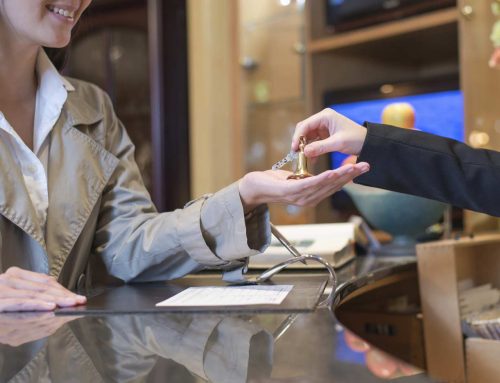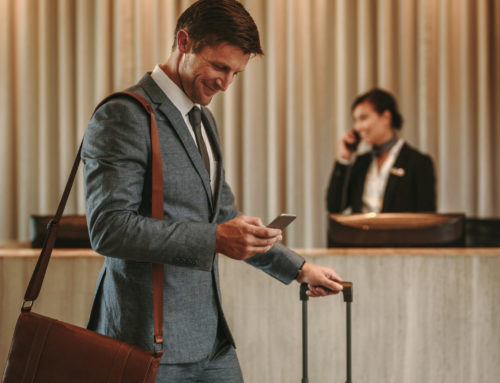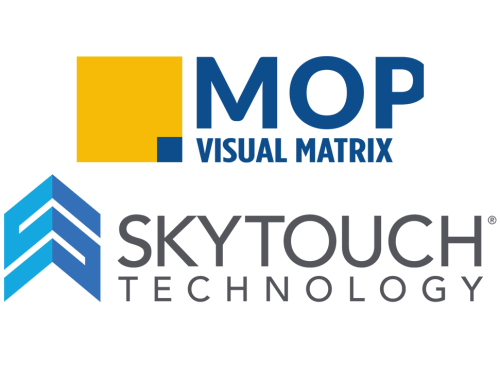In Part Two of our series on the Internet of Things, we discuss the present and future state of connected technology in the hospitality industry. Catch up on Part 1 here.
How will the Internet of Things (IoT) – that vast connection of objects, applications, communication and data analysis foreseen as the wave of the future – play out in the hotel environment? Beyond theory, how might the IoT actualize in the lobby, rooms, restaurants and other nooks and crannies that make up hotel properties to enhance the guest experience, drive loyalty and buoy the bottom line?
One possibility is robust guest profiles integrated into the hotel operating system that could inform functional things about guest preferences such as room temperature, lighting and other ambient elements. Many see mobile phone and apps as the key connectors that will allow guests to bypass the front desk to unlock their rooms via a digital key or enable hotel staff to track a guest’s on-property location in order to proactively connect them to amenities and services. SkyTouch Technology Senior Director of Enterprise Architecture and Research Larry Gorman says, “The Internet of Things will allow hotel systems to leverage guest mobile phones to track their current location, enabling hotel staff to address them by name as soon as they arrive. A bartender will be able to have a guest’s favorite drink ready to serve as soon as she sits down at the bar. The IoT can improve guest luggage tracking, airport shuttle service, and just about any other aspect of the guest experience.”
David Rose, instructor at the MIT Media Lab and author of the book, Enchanted Objects: Design, Human Desire, and the Internet of Things, takes it a step further by suggesting that a branded “totem” such as an exclusive fashion pin or stylish band could be imbued with RFID (radio-frequency identification) and issued when a guest steps on property, thus serving as an amenity in and of itself. Rose sees the value of using the IoT to make guest-stays more fluid and eliminating ”queueing moments like the front desk that should go away” as well as payment stations. His vision encompasses smart architectures that he says “will help people adapt to the unfamiliar” such as conductive thread that can be built into carpet to track footprint patterns and guide guests to the bathroom at night via luminescence.
Fashioning an Internet of Things point-of-view is on the agenda for forward-looking hotel companies. At the foundation of such a plan should be a customer-centric point of view that recognizes what hotel guests want, the importance of personalization and how quickly new technologies are adopted today. According to Hospitality Technology’s 2015 Lodging Technology Study, meeting escalating guest expectations has become a hotel technology executive’s top challenge. Plan to meet it by getting familiar with the Internet of Things and being willing to jump on the bandwagon before it passes your hotels by.




